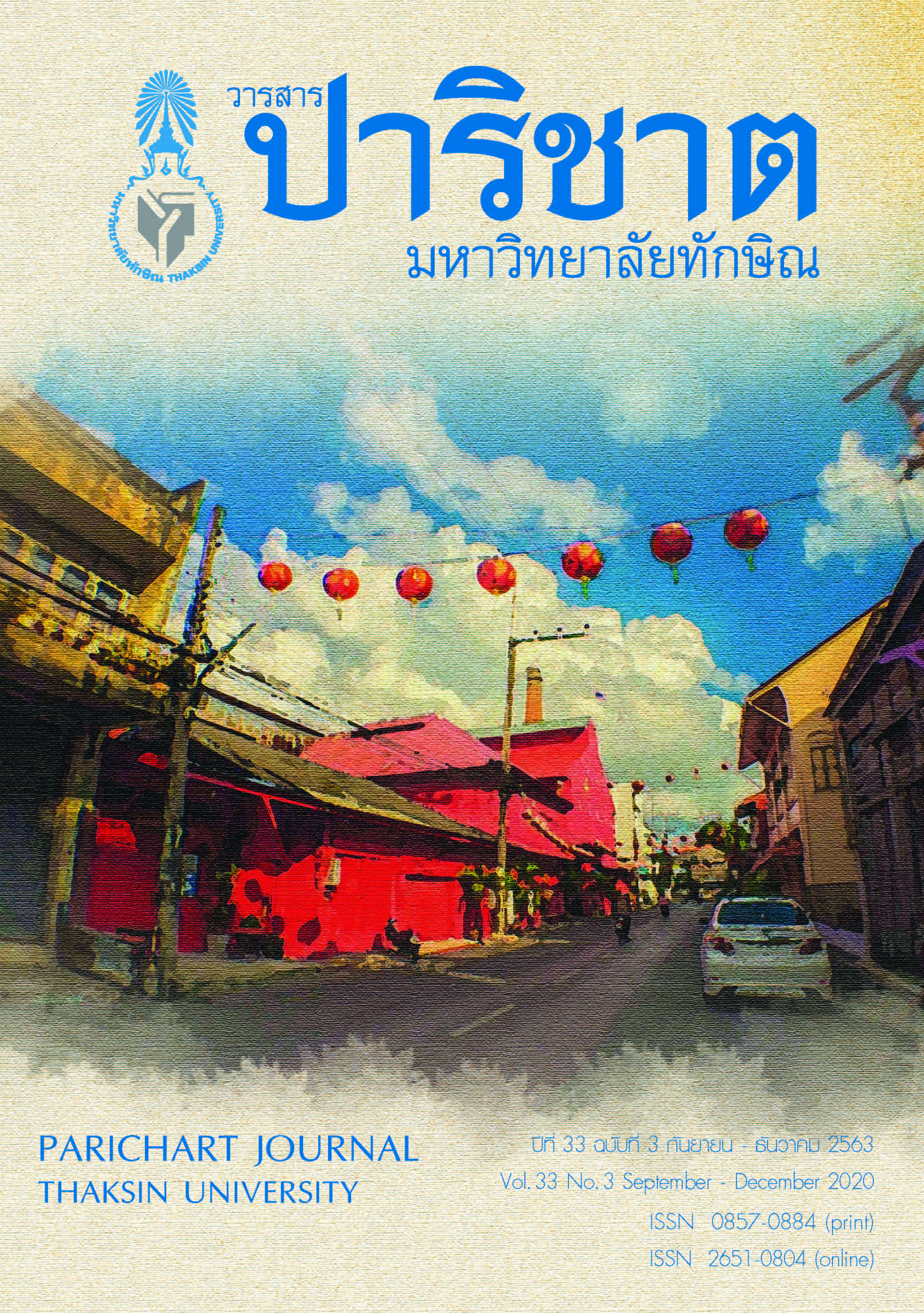The Negotiation Strategies for the Rights of Migrant Workers in Chiang Mai
Main Article Content
Abstract
This article focused on negotiation strategies for the rights of Tai Yai migrant workers (MW) in Chiang Mai, Thailand. The MV are invisible by Thai law, face with discrimination, and are exploited by Thai employers and officials. According to participatory observation, interview of migrant workers and NGO activists, and data collection from legal documents and reports of government and non-government organization, the MW used various strategies to negotiate for their rights. The creation of new identities, as hard working, tolerant, humble and honest people enables them to be accepted in term of social and economic citizenship. Not just re-configured the old social capital, such as relatives, friends and acquaintance, but they also invented the new one, such as being members of MW federation, the Thai Trade Union and legal organizations at the local, national and international levels. Moreover, some MW could not negotiate through court procedure and could not reveal their identity as other group of workers did, but they preferred to engage in everyday practice to make a living in Thailand.
Article Details
References
Imudom, W., et al., (2011). Project on economic and financial information exchange between The Bank of Thailand and financial businessmen. Bangkok: The Bank of Thailand. (in Thai)
Marshall, T. H. (1950). Citizenship and social class: And other essays. Cambridge: Cambridge University press.
Laungaramsri, P. (2018). Identification card: Genealogy of population control under the Thai nation-state. Chiang Mai: Office of Research Administration, Chiang Mai University. (in Thai)
Sakboon, M., et al. (2017). “Khon Rai Sanchat: Resident aliens and the paradox of national integration in Thailand’, in O. K. Gin & V. Grabowsky (Eds.), Ethnic and religious identities and integration in Southeast Asia, 57-104, Chiang Mai: Silkworm Books.
Ong, A. (1999). Flexible citizenship: The cultural logics of transnationality. Durham, NC: Duke University Press.
Rosaldo, R. (1994). Cultural citizenship and educational democracy, cultural anthropology, 9(3), 402-411.
Ganjanapan, A., & Samniang, C. (2014). Transnational workers: Identity and civil rights. Chiang Mai: Thai Universities for Healthy Public Policies, Chiang Mai University School of Public Policy. (in Thai)
Boonprakarn, K. (2014). The flowers of the dawn: A negotiation space for transnational workers and their relationship with the Thailand-Myanmar border economy. Thai Universities for Healthy Public Policies, Chiang Mai University School of Public Policy. (in Thai)
Andy, H., & Naphaumphorn, B. (2012). “Inaccessibility of workmen compensation fund:


